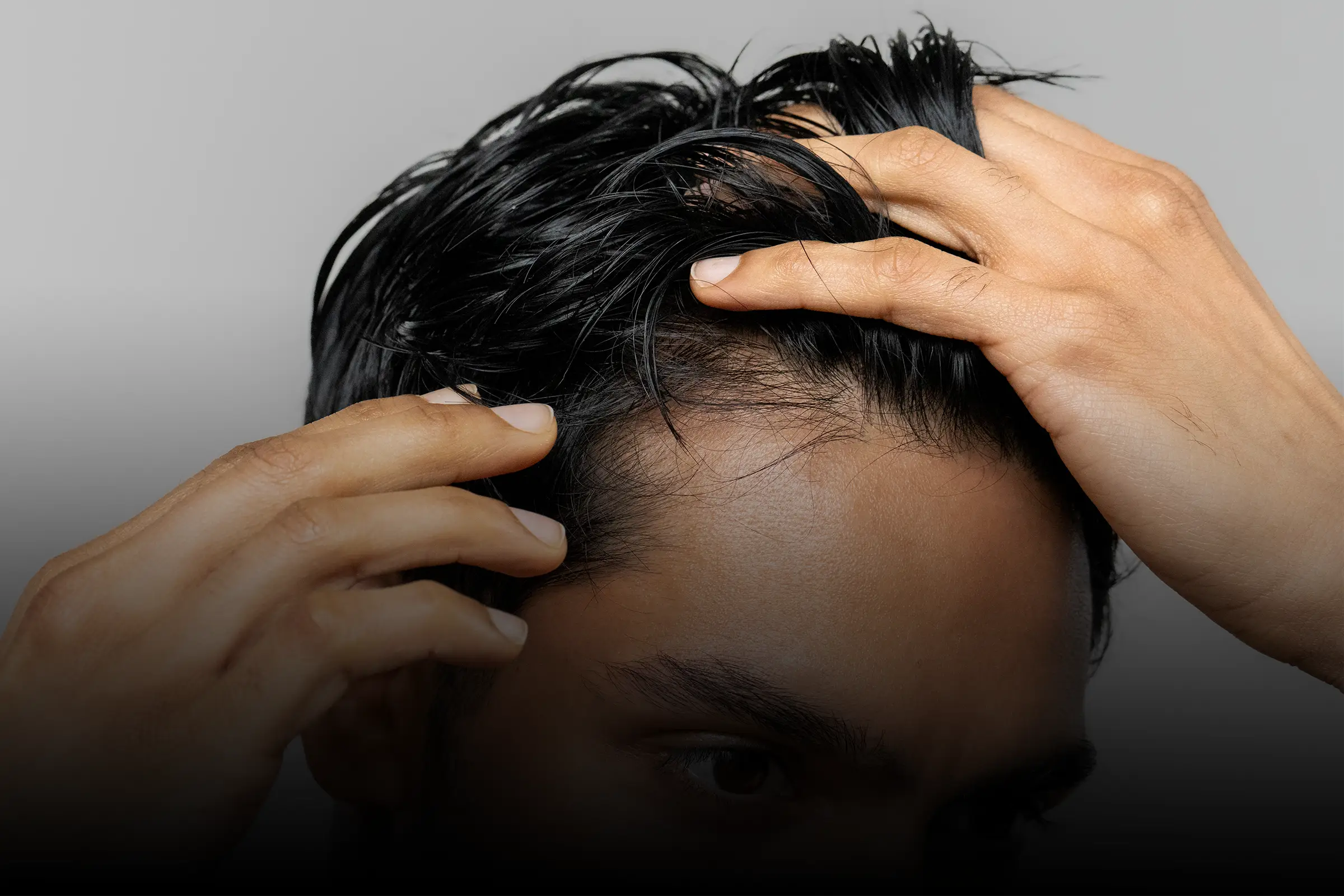PCOS (polycystic ovarian syndrome) is said to affect as many as 20% of women during their reproductive years (Abbot et al., 2022). Spironolactone is an example of a medication that healthcare professionals can prescribe off-label to help manage symptoms, which can include adult acne, hirsutism (unwanted facial and body hair growth), menstrual irregularities and infertility. In some cases, women can also experience progressive hair loss with PCOS. Let’s examine how spironolactone helps with PCOS and why it’s an important treatment option for women.
What is spironolactone?
Spironolactone is classified as an aldosterone receptor antagonist and anti-androgen. As an aldosterone receptor antagonist, spironolactone influences the body’s electrolyte balance (e.g. potassium and salt levels) which can have effects on blood pressure and fluid retention.
As an anti-androgen, spironolactone can help block the hormonal effects of androgens (male sex steroid hormones) on tissues that are sensitive to these hormones. It does this by attaching to androgen receptors located on cells and preventing hormones from binding and taking effect (Patibandla et al., 2023). It may also have a role in preventing the production of androgen hormones in the first place.
How does spironolactone help with PCOS?
Spironolactone helps with PCOS because it can treat associated hormonal imbalances. In about 80% of cases of PCOS, patients have hyperandrogenism, or produce more androgen hormones than normal (Abbot et al., 2022). Androgens are needed for the maintenance of health in both men and women, but excessive androgen levels in women can trigger symptoms like acne and unwanted body hair growth.
The role of androgen hormones in the body depends partly on where they’re found. In the hair follicles on the scalp, they can cause poor hair growth or even stop hair growth altogether. Elsewhere on the body (e.g., armpits) androgens function to promote hair growth. In the skin, they can affect the production of sebum, the oil that normally protects and hydrates the skin.
When an imbalance in androgen hormones is present, this can have serious effects on the quality of life and reproductive health of women. Taking a medication like spironolactone can help combat the effects of androgen excess, providing some relief from symptoms.
Hair loss due to PCOS
For some women with PCOS, pattern hair loss is a major concern. Pattern hair loss in women can be caused by factors like genetics, hormones and environmental influences.
We know that male pattern hair loss is closely associated with elevated levels of the androgen DHT in the blood and its effects on hair follicles located in the scalp. DHT can cause hair follicles to undergo a process called follicular miniaturization, which can lead to progressively weaker hairs and eventually, halt hair growth completely.
Although researchers are still investigating exactly how female pattern hair loss develops, high levels of DHT have been identified as a potential trigger in women, as well. Women with PCOS who have higher levels of androgens in their bodies may be more prone to developing pattern hair loss. These chances increase if a woman has a genetic predisposition, or family history of thinning hair.
Unlike other types of hair loss that women experience, female pattern hair loss tends to affect specific regions of the scalp including the hair part and front of the hair line. Medications like spironolactone, that help reduce androgen production and manage the symptoms of PCOS broadly, may also help some women slow the progression of hair loss and regrow their hair. At XYON, we're pleased to offer spironolactone for female hair loss.
Remember, spironolactone doesn’t treat hair loss specifically, but it can help manage the hormonal causes of a range of symptoms associated with PCOS. Not all women with PCOS will experience pattern hair loss but if this is something you’re concerned about, you may want to discuss this with your doctor.
What are the risks of taking spironolactone for PCOS?
Although it can be an effective medication for PCOS, spironolactone can cause side effects in some women. Examples of side effects that have been reported after using spironolactone include menstrual cycle changes, breast tenderness and/or swelling, dizziness or lightheadedness, headaches and more frequent urination (Santer et al., 2023). Some patients have also reported weight gain and mood changes, but the frequency of these side effects hasn’t been formally established.
Additionally, because spironolactone alters the body’s response to androgen hormones, women who are planning to become pregnant, are pregnant or breastfeeding should avoid taking this medication because it could pose harm to a developing male fetus. You can visit our article on spironolactone side effects to learn more.
What if I don't want to use spironolactone for PCOS?
PCOS can take a toll on quality of life, but the good news is that there are treatment options. If you don’t want to take spironolactone for PCOS, your doctor can make recommendations for other treatments after assessing your medical history. Depending on your symptoms, oral contraceptives might be an option to help keep hormone levels in check, or you may be recommended specific medications to help with unwanted hair growth or acne.
Spironolactone for PCOS: Takeaway
Spironolactone is commonly prescribed off-label to help women with PCOS manage their symptoms. The medication is an anti-androgen that works by modifying the body’s response to male sex steroid hormones. In some women, PCOS is associated with the production of more androgen hormones than normal, which is why taking spironolactone can help treat issues such as an irregular menstrual cycle, excess body hair growth and pattern hair loss.
However, spironolactone is not a one-size fits all medication and there are safety risks to be aware of, especially if you’re trying to become pregnant or are currently pregnant or nursing. If you’re considering taking spironolactone for PCOS, start by connecting with a healthcare provider today. If your main concern with PCOS is hair loss, it’s important to check with your doctor to ensure that your PCOS is being effectively managed and if hair loss still doesn’t improve, to talk to them about your options.

























